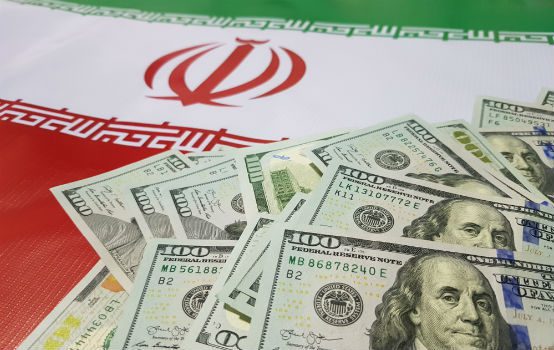The Cruelty and Arrogance of Sanctions

Barbara Slavin remarks on the cruelty and destructive effects of U.S. Iran sanctions:
With Donald Trump’s first term more than halfway over, the cruelty and futility of his sanctions predilections are evident. Trump backtracked on a military response to the shoot-down of the drone, using as an excuse that 150 Iranians might die and that this would not be “proportionate” to the U.S. loss. But one could argue that many more Iranians have already died prematurely because of shortages of medications that they have not been able to obtain—or that have become prohibitively expensive—because of banks’ over-compliance with U.S. sanctions.
Even now, the Trump administration has refused to provide practical guidelines to European companies seeking to sell non-sanctioned goods to Iran. U.S. officials are also threatening to sanction the Iranian counterpart to INSTEX, a barter vehicle set up by the European Union for trade with Iran that has yet to become operational.
Trump has not been overly zealous about preventing unnecessary loss of life in the past, and I doubt that this was his real reason for calling off the illegal strike last week. The president’s escalation of the war on ISIS involved much heavier, less discriminate bombing in Mosul and Raqqa that killed thousands of civilians and left those cities in ruins. He has presided over a dramatic increase in drone strikes without regard for the civilian casualties that these often cause. The ongoing slaughter of Yemeni civilians in a Saudi coalition war that he insists on supporting does not appear to have bothered him. The widespread near-famine conditions in Yemen have not moved him at all. Whatever convinced him not to follow through on the attack he had no authority to order, it was not concern for proportionality or loss of life. A president who routinely inflicts collective punishment on tens of millions of people in one country after another is not terribly worried about the lives of others.
Broad sanctions that cripple a nation’s entire economy are intended to cause as much pain and suffering as possible. Their intended purpose is to hurt the entire population on the assumption that this will put political pressure on the government to surrender to U.S. demands or to force a change in government. That doesn’t happen because the government usually refuses to cave under pressure, the pressure campaign tends to make the regime relatively stronger at home, and impoverishing the population forces them to focus on survival rather than opposition to the regime. Hawks like to use sanctions to bludgeon countries whose governments they dislike, and they definitely want to bring about regime change, but instead of forcing an uprising the sanctions usually bring ruin to the people while allowing the regime to hang on to power. When the regime is an authoritarian one, sanctions consistently weaken the people to the regime’s benefit. Francisco Rodriguez commented on this in a recent Financial Times article that addressed the effects of sanctions in Venezuela:
“People thought that if you create an economic crisis you would bring down the government,” said Francisco Rodriguez, a Venezuelan economist at Torino Capital. “In democracies, that does happen but it’s not what happens in a dictatorship. The poorer the country is, the fewer resources there are, the more powerful the government becomes versus the rest of society.”
Collective punishment of entire nations is immoral and wrong. It is also a guaranteed way to provoke resistance, and it often drives the population and regime together. Iranians have many legitimate grievances against their government and they are frustrated with corruption, mismanagement, and abuse, but when their country is placed under siege and they are made to suffer because a foreign power wants to dictate terms to their government there is a natural tendency to put aside internal disagreements in the face of the greater external threat. Collective punishment can cause the people targeted by it to become more nationalistic, and in countries with a strong nationalist tradition this is even more likely. When the people suffering under these sanctions liken their experience to being at war, it makes sense that they are going to respond in the same way as they would if they were under military attack instead of economic siege. When the U.S. government is seeking to make them miserable and poor, Iranians are unlikely to take enormous risks to do Washington’s bidding by toppling their own government.
The overuse of sanctions is itself an abuse of power. The U.S. has tremendous financial clout, and it has increasingly chosen to use it as a flail to scourge every government that doesn’t capitulate and abandon its own interests. The impulse to sanction one country after another is the same impulse behind wanting to “do something” militarily against this or that regime: we do it because we can and because we think we have the right to do whatever we want to others. The same arrogance and the same contempt for the sovereignty of other nations are on display. We should be opposed to the interventionists that want to use American military power to cause unnecessary death and destruction in other parts of the world, and in the same way we should reject the capricious and cruel use of economic sanctions to inflict misery and suffering on tens of millions of innocent people.
Comments